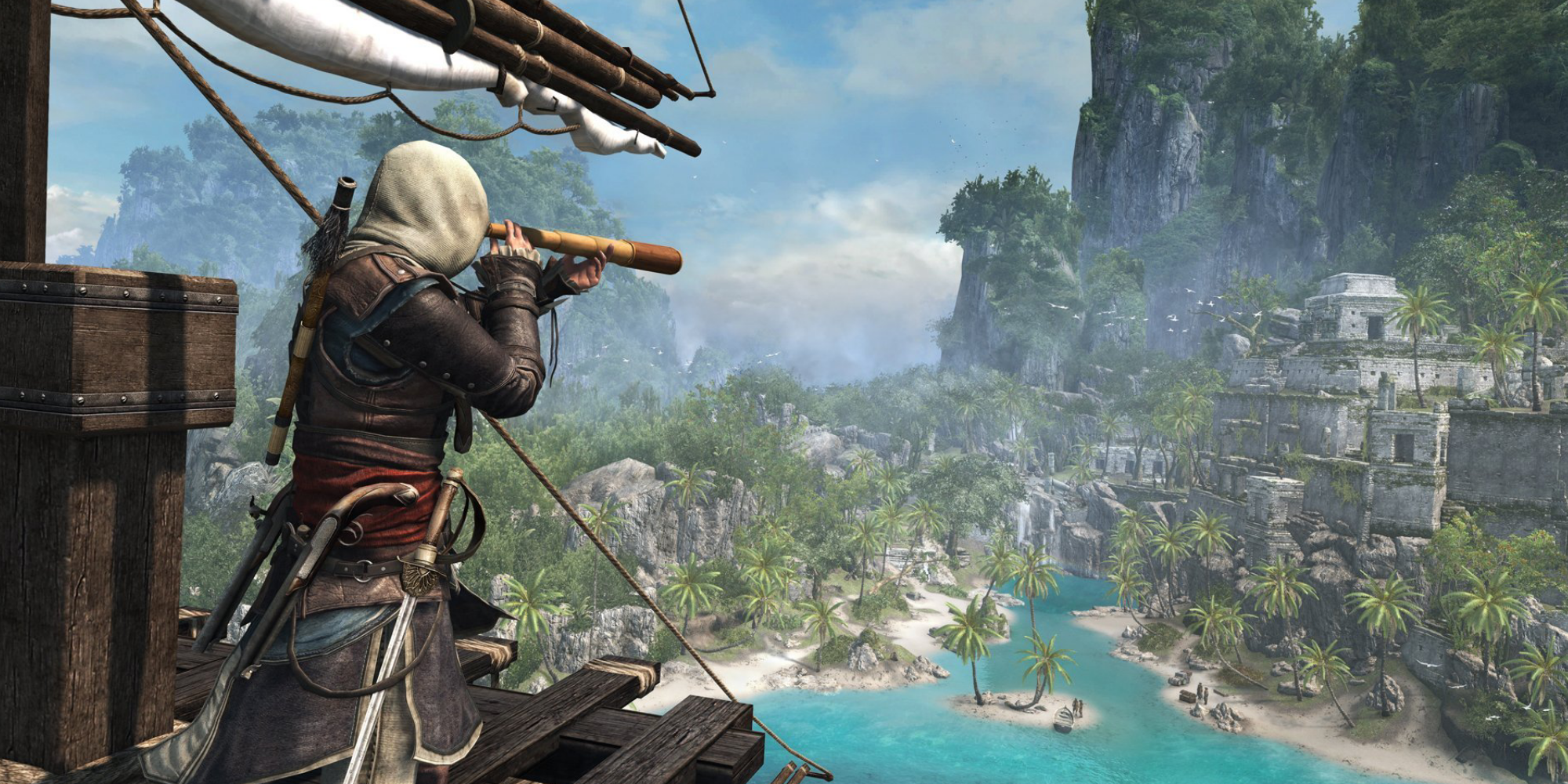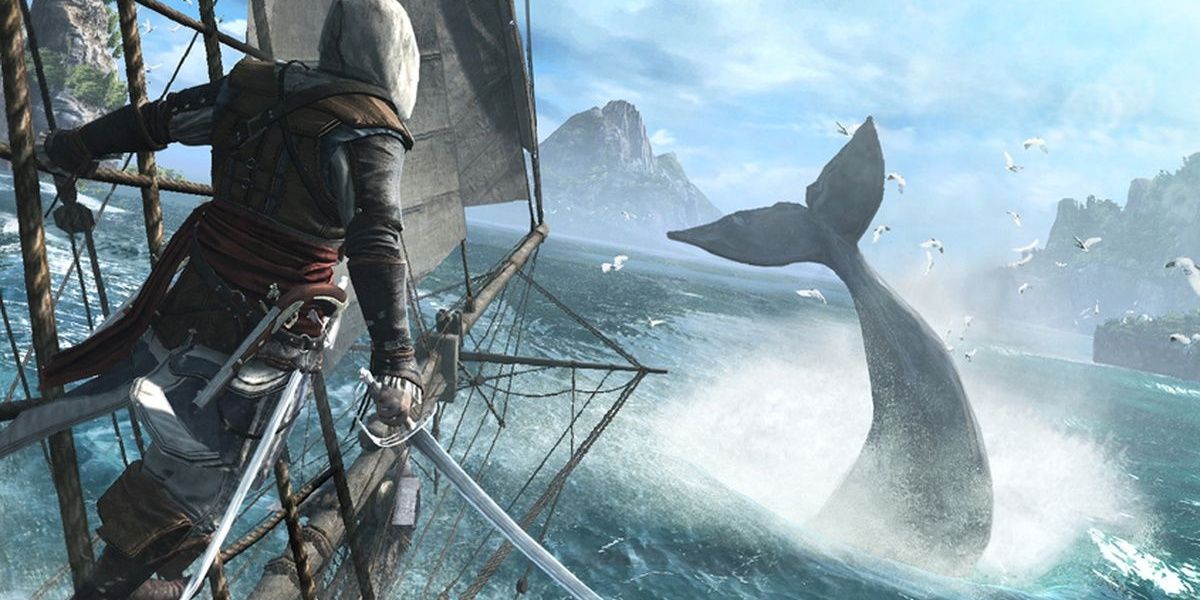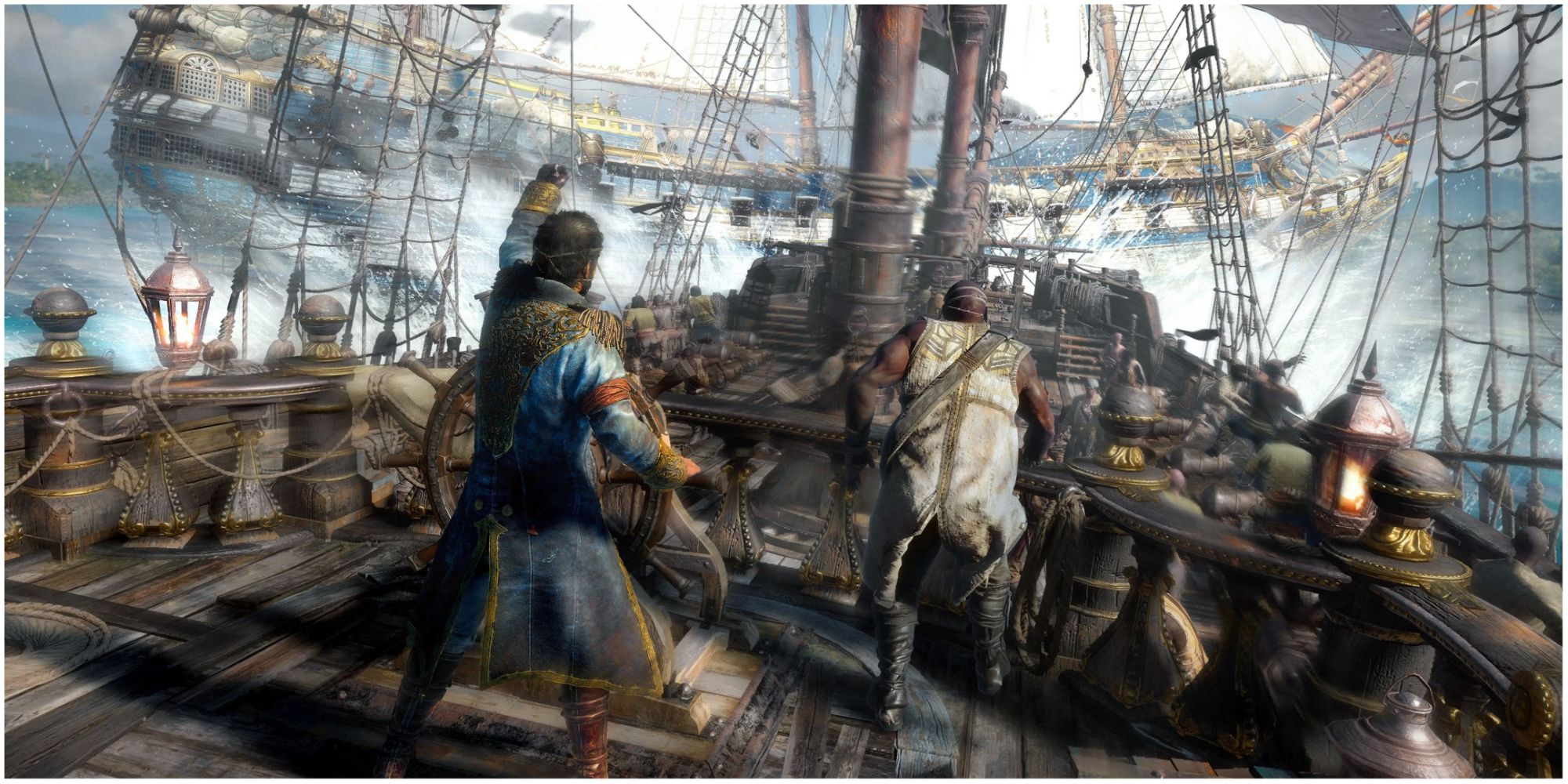So Skull and Bones has been delayed again, to the surprise of absolutely no one. For a moment, I wondered if Ubisoft would be better off ‘doing a Star Citizen’ and basically abandoning the idea of a release date for the game altogether, simply letting us enjoy the drips and drabs of the game that trickle through over time rather than giving us any kind of expectations. But then I had an epiphany in the form of a question: does anyone actually care about Skull and Bones any more?
Even when it was first announced in the slipstream of the success of Assassin’s Creed 4: Black Flag, Skull and Bones always seemed conceptually, well, a little barebones. It went from Black Flag DLC to MMO to ship skirmish game, and it never seemed to settle on any formula that sounded terribly compelling. It’s stagnated in development for so long now that a whole new video-game genre, survival games, rose up in the meantime, which prompted Ubisoft to at one point chuck in Rust-like survival elements into it. I mean, at this point, why the hell not? It’s not like the game has any strong sense of identity anyway.
Skull and Bones, whatever it really is or will be, clearly isn’t clicking. And with Black Flag now a distant memory, and people continuing to flock to Sea of Thieves for their online piratey kicks, maybe that Skull and Bones ship has sailed, and it’s time to give us the Black Flag sequel so many of us have always wanted. Take whatever shippy-saily stuff they’ve achieved with Skull and Bones since it entered development 10 years ago (they must’ve achieved something in that time, right?), and integrate it into a sprawling open-world pirate adventure for the current generation.
And yes, sure Ubisoft, you can keep in a multiplayer mode driven by microtransactions and cosmetics, seeing as you’re so desperate to find a foothold in the service game scene. Whatever.
To date, Black Flag is the best-selling game in the Assassin’s Creed series, even though it’s the least ‘Assassin’s Creed’ game of them all (whether you choose to judge it by the pre-Odyssey ‘assassin sim’ metric or the subsequent RPG stylings). The adventures of rakish pirate Edward Kenway were only tangentially related to the overarching Templar story nonsense, and the game thrived in that freedom as well as the freedom of the high seas. And the latter is a key thing here; for its time, Black Flag’s sense of freedom was incomparable, even though it was to an extent illusory.
The reason for that was what I like to call ‘The Wind Waker Paradox.’ By being set in an archipelago of islands that you could sail between with wanton abandon, waves bouncing off yer ports and starboards as you sang sea shanties with your crew, Black Flag felt huge, even though most of that was just open sea; the fact that you could jump off your ship at any point to swim to a nearby island, or dive beneath the waves for treasure, amplified that sense of scale.
Impressive though Black Flag’s Caribbean spectacle was, the reality is that you couldn’t visit most of the islands in the archipelago, and the bigger ones were very limited in your points of entry and how much of them you could explore. But the game was clever, and even if the islands were largely made up of glorified corridors, what stunning corridors they were–verdant tropical tunnels filled with the cacophony of a thousand exotic creatures, hanging vines, waterfalls, and sunlight shimmering through the canopies. Even though you’d be hard-pressed to actually get lost in the game’s jungles, there were plenty of moments where you could stop whatever you were doing, slowly pan the camera around Kenway, and feel utterly immersed in the environment.
The beautiful thing is that in the nine intervening years since Black Flag, gaming tech has reached a point where that immense sense of freedom no longer needs to be an illusion. Assassin’s Creed: Odyssey already proved that five years ago, and we’re yet another console generation on from that now. But admirable though Odyssey’s depiction of the Aegean archipelago was, the setting couldn’t quite tap into that swashbuckling seafaring fantasy like Black Flag. The Golden Age of Piracy holds a very special place in the popular imagination that isn’t easily replaced–even if some of those Greek shanties were pretty catchy themselves.
It’s viable at this point to think that Kenway’s adventure is better known as ‘Black Flag’ or ‘The Pirate One’ than ‘Assassin’s Creed 4,’ so why not separate it off into its own IP while Assassin’s Creed continues down its path towards becoming a unified service mega-game? Skull and Bones as an IP feels tarnished now, dead in the water, well on the way to become a running joke synonymous with endless delays. Black Flag, on the other hand, represents Ubisoft’s finest hour, and would be a far better launchpad into a new IP that could deftly ride the wave of one of the company’s most beloved games.
Free from the Assassin’s Creed IP and integrating the tough lessons learned from the protracted development of Skull and Bones, a Black Flag 2 could be just what Ubisoft needs to break out of its creative and commercial rut. Whether it spins Edward Kenway off into his own mythos or follows a new hero; whether it takes place in a realistically modelled Caribbean, or a fantastical seascape where Kraken lurk beneath the waves and the edges of the maps are waterfalls leading to a Stygian underworld, a new Black Flag could give us that sense of seafaring freedom and adventure we’ve long been missing.



